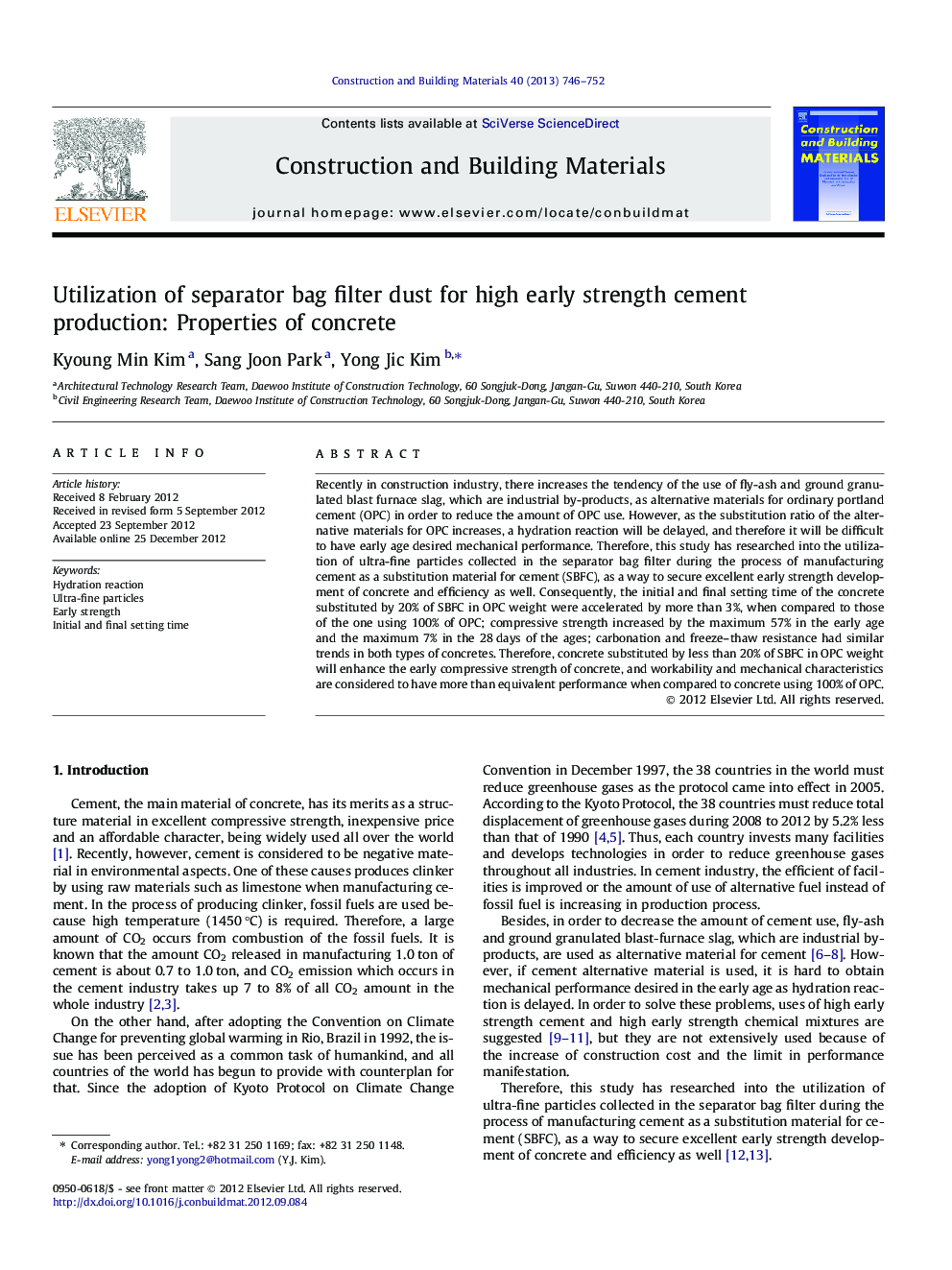| Article ID | Journal | Published Year | Pages | File Type |
|---|---|---|---|---|
| 258315 | Construction and Building Materials | 2013 | 7 Pages |
Recently in construction industry, there increases the tendency of the use of fly-ash and ground granulated blast furnace slag, which are industrial by-products, as alternative materials for ordinary portland cement (OPC) in order to reduce the amount of OPC use. However, as the substitution ratio of the alternative materials for OPC increases, a hydration reaction will be delayed, and therefore it will be difficult to have early age desired mechanical performance. Therefore, this study has researched into the utilization of ultra-fine particles collected in the separator bag filter during the process of manufacturing cement as a substitution material for cement (SBFC), as a way to secure excellent early strength development of concrete and efficiency as well. Consequently, the initial and final setting time of the concrete substituted by 20% of SBFC in OPC weight were accelerated by more than 3%, when compared to those of the one using 100% of OPC; compressive strength increased by the maximum 57% in the early age and the maximum 7% in the 28 days of the ages; carbonation and freeze–thaw resistance had similar trends in both types of concretes. Therefore, concrete substituted by less than 20% of SBFC in OPC weight will enhance the early compressive strength of concrete, and workability and mechanical characteristics are considered to have more than equivalent performance when compared to concrete using 100% of OPC.
